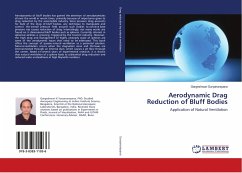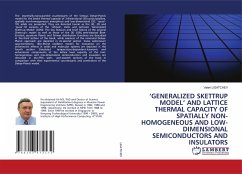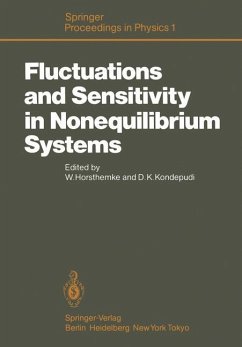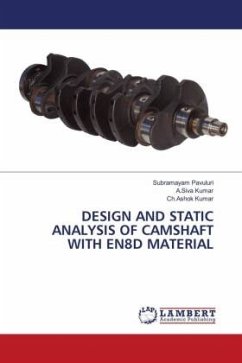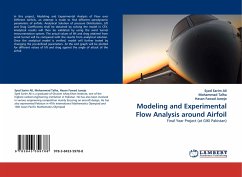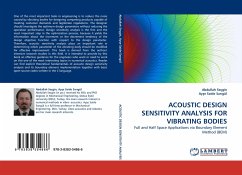
ACOUSTIC DESIGN SENSITIVITY ANALYSIS FOR VIBRATING BODIES
Full and Half Space Applications via Boundary Element Method (BEM)
Versandkostenfrei!
Versandfertig in 6-10 Tagen
32,99 €
inkl. MwSt.

PAYBACK Punkte
16 °P sammeln!
One of the most important tasks in engineering is to reduce the noise caused by vibrating bodies for designing competing products capable of meeting costumer demands and legitimate regulations. The designer should investigate the optimum design parameters without reducing the operation performance. Design sensitivity analysis is the first and the most important step in the optimization process, because it yields the information about the increment or the decrement tendency of the design objective function with respect to the design parameter. Therefore, acoustic sensitivity analysis plays an i...
One of the most important tasks in engineering is to reduce the noise caused by vibrating bodies for designing competing products capable of meeting costumer demands and legitimate regulations. The designer should investigate the optimum design parameters without reducing the operation performance. Design sensitivity analysis is the first and the most important step in the optimization process, because it yields the information about the increment or the decrement tendency of the design objective function with respect to the design parameter. Therefore, acoustic sensitivity analysis plays an important role in determining which parameter of the vibrating body should be modified for effective improvement. This book is derived from the authors' intensive research studies in this field. It is intended to provide by this book an effective guidance for the engineers who want or need to work on this one of the most interesting topics in numerical acoustics. Reader can find explicit theoretical fundamentals of acoustic design sensitivity analysis and its boundary element implementation together with basic open-source codes written in the C language.



